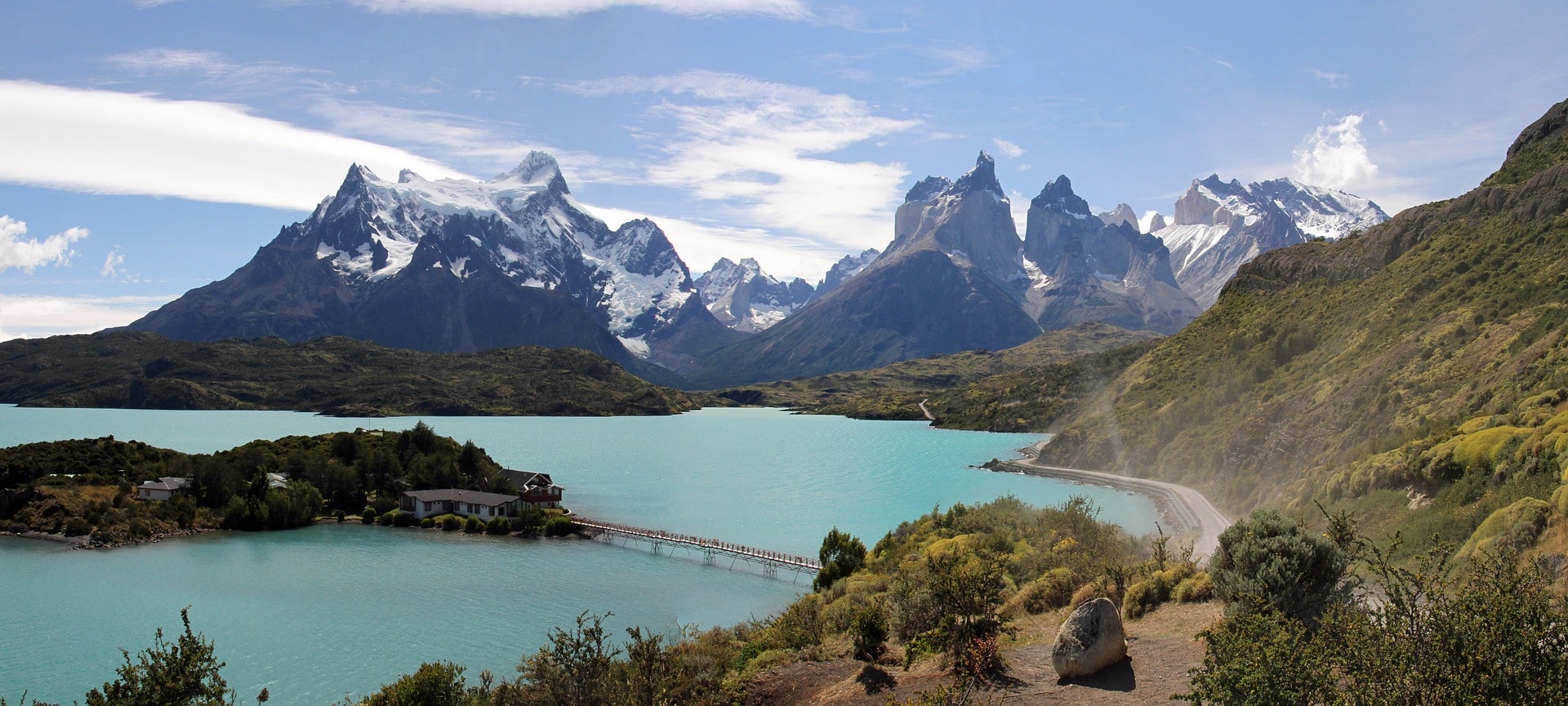
Why should you consider studying in Chile?
Why Chile?
There are many reasons why you might consider studying in Chile. Here are some of the top reasons:
- High-Quality Education: Chile has a well-established education system, with many reputable universities and educational institutions. Known for their high academic standards and quality of education. Ranked among the top universities in Latin America.
- Affordable Tuition: Chilean universities offer affordable tuition rates compared to many other countries, making it an accessible option for students seeking a quality education.
- Cultural Diversity: Chile is a diverse and multicultural country, with a rich history and a vibrant arts and culture scene. Studying in Chile can provide opportunities to learn about new cultures and gain a broader perspective.
- Natural Beauty: Chile has stunning natural beauty, from the towering Andes Mountains to the rugged coastline and expansive deserts. Studying in Chile provides opportunities to explore these landscapes and experience the country’s natural wonders.
- Language Learning: Spanish is the official language of Chile, and studying in Chile can provide opportunities to learn and improve your Spanish language skills. This can be a valuable skill for personal and professional development, especially in today’s globalized world.
- Internship and Job Opportunities: Chile has one of the most stable and prosperous economies in Latin America, with growing industries in areas such as technology, renewable energy, and tourism. Studying in Chile can provide opportunities to gain valuable work experience and potentially make connections for future employment.
Overall, studying in Chile can provide opportunities to gain a quality education, experience new cultures and natural beauty, and potentially gain valuable work experience in a growing economy.
What are the best courses to study in Chile?
Chile offers a variety of courses and degree programs, and the best course of study will depend on your interests, career goals, and academic background. Here are some popular and highly regarded courses of study in Chile:
In Demand Courses
- Business and Economics: Chile has a strong economy and is known for its business-friendly environment, making it an ideal place to study business and economics. Top universities in Chile offer undergraduate and graduate degree programs in business, economics, finance, and related fields.
- Engineering: Chile has a growing technology industry and is investing in infrastructure development, making it an excellent place to study engineering. Top universities in Chile offer undergraduate and graduate degree programs in fields such as civil engineering, mechanical engineering, and electrical engineering.
- Medicine and Health Sciences: Chile has a well-developed healthcare system and is known for its high-quality medical education. Top universities in Chile offer undergraduate and graduate degree programs in medicine, nursing, public health, and related fields.
- Natural Resources and Environmental Science: Known for its rich natural resources, including copper, timber, and fisheries, and has made significant strides in environmental protection and sustainability. Top universities in Chile offer degree programs in natural resources management, environmental science, and related fields.
- Education and Social Sciences: Chile has a strong education system and is committed to social justice and equality. Top universities in Chile offer degree programs in education, psychology, sociology, and related fields.
- Arts and Humanities: Chile has a rich cultural heritage and vibrant arts scene, making it an ideal place to study arts and humanities. Top universities in Chile offer degree programs in fields such as literature, history, art, and music.
These are just a few examples of the best courses to study in Chile. It’s important to research specific universities and degree programs to find the best fit for your interests and career goals.
Top Universities in Chile
Chile has many excellent universities, some of which are ranked among the best in Latin America. Here is a list of the top universities in Chile according to the 2023 QS World University Rankings:
- Pontificia Universidad Católica de Chile (PUC)
- Universidad de Chile
- Universidad de Concepción
- Universidad Técnica Federico Santa María
- Universidad Adolfo Ibáñez (UAI)
- Universidad Austral de Chile
- Universidad Católica del Norte
- Universidad Diego Portales (UDP)
- Universidad de Santiago de Chile
- Universidad de Valparaíso
It’s important to note that rankings can vary depending on the criteria used and the source of the rankings. It’s also important to research specific universities and degree programs to find the best fit for your interests and career goals.
How to study in Chile?
If you are interested in studying in Chile, here are the general steps you can take:
- Research universities and degree programs: Research universities in Chile that offer degree programs in your field of interest. Check the admission requirements, application deadlines, tuition fees, and scholarships available.
- Meet the admission requirements: Ensure that you meet the admission requirements for the degree program you are interested in. This may include submitting academic transcripts, language proficiency test scores, recommendation letters, and a statement of purpose.
- Apply to universities: Apply to the universities of your choice by submitting the required documents and application fee. You may also need to take an entrance exam, depending on the program and university.
- Obtain a student visa: Once you have been accepted into a degree program, you will need to obtain a student visa. This may require submitting additional documents such as a criminal record check, a medical certificate, and proof of financial support.
- Find accommodation: Research housing options near your university, such as student dormitories, shared apartments, or homestays. Consider the cost, location, and facilities available.
- Attend orientation: Attend the orientation provided by your university, which will provide you with important information about the campus, academic requirements, and student services.
- Register for classes: Register for classes at the beginning of the semester and obtain your student ID card.
Studying in Chile can be a rewarding experience, but it requires careful planning and preparation. It’s important to start the process early and ensure that you have all the necessary documents and information.
Essential Requirements
The essential requirements to study in Chile vary depending on the level of study and the university or program you are applying to. However, here are some general requirements that international students typically need to meet:
- Academic transcripts: You will need to submit academic transcripts from your previous studies, such as high school or undergraduate degrees. These transcripts should be translated into Spanish and validated by the Chilean consulate or embassy in your home country.
- Language proficiency: If your first language is not Spanish, you may need to provide proof of your proficiency in Spanish. This may include scores from language proficiency tests such as DELE, CELU, or SIELE.
- Entrance exam: Depending on the program and university, you may need to take an entrance exam to demonstrate your academic proficiency.
- Passport: You will need a valid passport to apply to a Chilean university.
- Student visa: Once you have been accepted into a degree program, you will need to obtain a student visa. This may require submitting additional documents such as a criminal record check, a medical certificate, and proof of financial support.
- Health insurance: International students are required to have health insurance that covers medical expenses during their stay in Chile.
- Financial support: You will need to demonstrate that you have sufficient financial resources to cover tuition fees, living expenses, and other costs during your stay in Chile. This may include submitting bank statements or a letter of financial support from a sponsor.
It’s important to check the specific requirements of the university and program you are interested in, as they may have additional or different requirements.
The estimated cost of fulfilling your study abroad dream
The costs of studying in Chile can vary depending on the university, degree program, and location. Here are some of the costs to consider:
- Tuition fees: Tuition fees vary depending on the university and degree program but generally range from around $3,000 to $12,000 per year for undergraduate programs and up to $20,000 per year for graduate programs.
- Accommodation: The cost of accommodation will depend on the type of housing you choose and its location. Shared apartments or homestays can cost around $300 to $500 per month, while private apartments can cost upwards of $500 per month.
- Food: The cost of food can vary depending on your eating habits, but a typical monthly food budget can range from $150 to $300.
- Transportation: Public transportation is relatively affordable in Chile, with the cost of a single metro ride in Santiago costing around $1.30. A monthly transportation pass can cost around $30 to $50.
- Health insurance: International students are required to have health insurance that covers medical expenses during their stay in Chile. The cost of health insurance can vary depending on the provider and coverage.
- Books and supplies: The cost of books and supplies will depend on the degree program, but can range from $100 to $500 per semester.
It’s important to research the specific costs of the university and program you are interested in and factor in additional expenses such as travel and personal expenses. Additionally, scholarships and financial aid may be available to help offset the cost of studying in Chile.
Academic Scholarships and Grants
Chile offers various academic scholarships and grants for international students to study in the country. Here are some of the options:
- Chilean Government Scholarship: The Chilean government offers scholarships for undergraduate, graduate, and postgraduate studies, as well as research programs. The scholarship covers tuition fees, a monthly living allowance, and round-trip airfare.
- CONICYT Scholarship: The National Commission for Scientific and Technological Research (CONICYT) offers scholarships for graduate and postgraduate studies in science and technology fields. The scholarship covers tuition fees, a monthly living allowance, and health insurance.
- Becas Chile Scholarship: Offered by the Chilean government and provides financial assistance for international students to pursue graduate and postgraduate studies in various fields. The scholarship covers tuition fees, a monthly living allowance, and health insurance.
- University Scholarships: Many universities in Chile offer scholarships for international students based on academic merit or financial need. These scholarships can cover tuition fees or provide a monthly living allowance.
- Erasmus+ Program: The Erasmus+ program offers scholarships for students from European countries to study in Chile. The scholarship covers tuition fees, travel expenses, and a monthly living allowance.
It’s important to research the specific scholarship options available for the university and program you are interested in, as well as the eligibility requirements and application deadlines.
Step-by-step process to get your Student Visa
Here is a step-by-step process to obtain a Chile student visa:
- Apply to a Chilean university: Before applying for a student visa. You must first apply and be accepted to a Chilean university.
- Obtain a letter of acceptance: Once you have been accepted into a degree program. You will need to obtain a letter of acceptance from the university.
- Gather required documents: You will need to gather the required documents, which include:
- Passport with at least 6 months validity
- Birth certificate
- Health certificate
- Criminal record certificate
- Proof of financial support
- Proof of medical insurance
- Two passport-sized photos
- Fill out the visa application form: You will need to fill out the visa application form. Which can be obtained from the Chilean embassy or consulate in your home country or through their website.
- Submit application and pay fee: You will need to submit your completed application form along with the required documents and pay the visa fee.
- Schedule an appointment: You will need to schedule an appointment at the Chilean embassy or consulate in your home country to submit your application and biometric data.
- Attend appointment: Attend your appointment at the embassy or consulate, where you will be required to provide biometric data such as fingerprints.
- Wait for visa approval: After submitting your application, you will need to wait for visa approval. This process may take a few weeks or longer, depending on the embassy or consulate.
- Collect your visa: Once your visa has been approved, you can collect your visa and enter Chile.
It’s important to note that the specific requirements and procedures for obtaining a Chile student visa may vary depending on the embassy or consulate in your home country. It’s recommended to contact the embassy or consulate or check their website for more information on the visa application process.
What are after-study opportunities in Chile?
After completing their studies in Chile, international students have several options for career opportunities and further education.
- Work opportunities: International students can apply for a work visa to stay in Chile after graduation and work in their field of study. The process of obtaining a work visa can be complicated. It’s recommended to research the requirements and application process thoroughly.
- Entrepreneurship: Chile has a thriving startup ecosystem and encourages entrepreneurship. International students can explore starting their own businesses in Chile. By taking advantage of the country’s pro-business policies and support for startups.
- Further education: After completing a degree in Chile, international students can pursue further education in the country or elsewhere. Chile has several world-renowned universities, and students may consider pursuing a master’s or doctoral degree to advance their careers.
- Return to their home country: International students may choose to return to their home country. Apply the skills and knowledge they gained in Chile to their careers there.
Overall, Chile offers many opportunities for international students to start their careers or continue their education after graduation. It’s important for students to research their options and plan accordingly to make the most of their time studying in Chile.
Different Visas and Permanent Residency
Chile offers several opportunities for working and settling for foreign nationals. Here are some of the options:
- Work Visa: Foreign nationals can apply for a work visa to work in Chile. The visa is valid for up to two years and can be extended. To obtain a work visa, the applicant must have a job offer from a Chilean employer and meet certain requirements.
- Start-up Visa: Chile has a Start-up visa program that allows foreign entrepreneurs to start a business in the country. The program offers financial support, mentorship, and networking opportunities to help start-ups succeed.
- Investment Visa: Foreign nationals who invest a certain amount of money in Chile can apply for an investment visa. The amount required varies depending on the type of investment, but it’s usually around USD 100,000.
- Family Visa: Foreign nationals who have family members who are Chilean citizens or permanent residents can apply for a family visa. The visa allows the applicant to live and work in Chile.
- Retirement Visa: Foreign nationals who are retired and have a certain amount of income can apply for a retirement visa. The visa allows the applicant to live in Chile without working.
Chile is a stable country with a growing economy and offers many opportunities for foreign nationals to work and settle. It’s important to research the specific requirements and application processes for each visa category and plan accordingly.
Hope you found this article helpful. If you have any suggestions or queries regarding this then feel free to comment on the post, and we will get back to your query ASAP. Thank you and Best of Luck😊.



